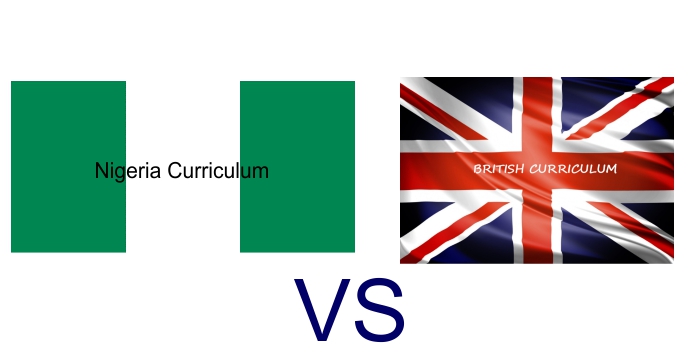15. July 2025
Admin
How to Choose Between Nigerian and British Curriculum

As a parent in Nigeria, one of the most important decisions you’ll make is choosing the right curriculum for your child’s education. The two most common options are the **Nigerian Curriculum** and the **British (UK) Curriculum**. Each has its advantages, structure, and long-term benefits depending on your child’s learning goals and future aspirations.
Quick Insight: The Nigerian curriculum is best for students aiming to stay local or in West Africa, while the British curriculum is globally aligned and suited for international university admissions.
1. Understanding the Nigerian Curriculum
Developed by the Nigerian Educational Research and Development Council (NERDC), this curriculum is structured into:
- Basic Education (Primary and JSS)
- Senior Secondary School (SS1–SS3)
- National Examinations: WAEC, NECO, JAMB
It prepares students for universities within Nigeria and across West Africa.
2. Understanding the British Curriculum
Also known as the National Curriculum for England, this system includes:
- Key Stages 1–4 (ages 5–16)
- IGCSE (usually taken in Year 11)
- A-Levels (for university preparation)
It is widely accepted by universities in the UK, USA, Canada, and beyond.
3. Key Differences at a Glance
- Flexibility: The British curriculum allows students to choose subjects earlier (e.g., at IGCSE and A-Level stages).
- Assessment: Nigerian system uses cumulative classwork and national exams. British system relies heavily on final IGCSE/A-Level exams.
- Language: Both use English, but the British curriculum places higher emphasis on advanced English comprehension and analysis.
4. Cost Implications
- British curriculum schools are generally more expensive due to international affiliations, UK-trained teachers, and imported resources.
- Nigerian curriculum schools are more affordable and widely available.
- Some schools offer a hybrid of both (British in early years, Nigerian in secondary or vice versa).
5. University Admission Considerations
- Nigerian Curriculum: Best for admission into Nigerian and some West African universities using WAEC and JAMB.
- British Curriculum: Ideal for UK, Canada, Australia, and U.S. admissions using IGCSE, A-Levels, and SATs.
- IGCSE and A-Level students often have more flexible subject combinations for global university entry.
6. Teaching Style and Class Engagement
- British system focuses more on projects, inquiry-based learning, and independent thinking.
- Nigerian system emphasizes content mastery, classroom instruction, and discipline.
- Both systems now adopt blended learning using digital tools and interactive resources.
7. Which Is Right for Your Child?
- Choose Nigerian Curriculum if: You prefer local tuition, familiar academic pace, and intend for your child to school in Nigeria or nearby countries.
- Choose British Curriculum if: You are preparing your child for study abroad, want globally benchmarked assessments, and can afford higher fees.
- Hybrid schools offer the best of both—starting with British early on, then blending in WAEC or NECO requirements.
Final Thoughts
Both the Nigerian and British curricula have their strengths. The best choice depends on your child’s future goals, learning style, and your family's budget. Visit schools, speak to guidance counselors, and evaluate your child’s academic interest before deciding. Whichever path you choose, ensure the school is accredited and offers quality instruction.
Note: Always ask the school if their British curriculum is fully accredited by Cambridge International or Pearson Edexcel.
